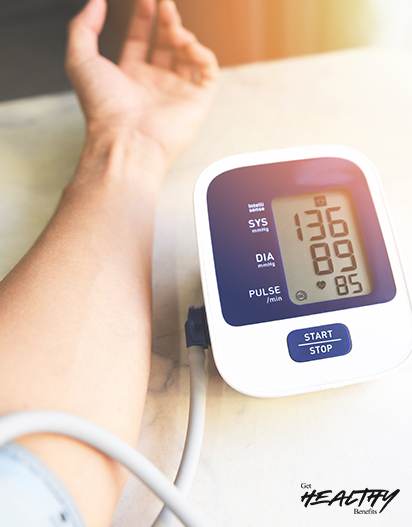The Perils of Social Media: How Social Networking is Impacting Mental Health
Social media has become deeply embedded in millions of individuals worldwide, and with its use come many potential issues. It is now well established that the adverse side effects of online communication and networking can have severe repercussions for mental health.
As we use social media to keep up with friends, display ourselves to others, obtain news and entertainment, or even make important life decisions, we must know how social media affects mental health and causes psychological issues, such as anxiety and depression.
Understanding these mental health impacts requires us to take an honest look at how our behaviors on social networks affect ourselves and those around us. This is why understanding more about the perils of social media is critical to foundering a healthier relationship with our digital selves.
How does Social Media Impacts Mental Health?
How does social media affect mental health? Social media has become a vital part of our daily lives, providing a direct source of information, connection with peers and family, and entertainment. However, the same tools that keep us informed can also substantially impact our mental health.
Researchers have found links between increased social media use and depression, anxiety, poor sleep habits, and low self-esteem. Social media platforms affect mental health in multiple ways.
The overly curated images we see can create feelings of heightened body image dissatisfaction; the sheer quantity of time spent scrolling can result in a lack of mindfulness; comparison to others' online avatars may contribute to dangerous thoughts or behaviors; and even subtle microaggressions can lead to issues within a person's mental state. Thus, it is essential to make sure that we are mindful of how much time we spend on various platforms and that we connect with people positively and healthily.
Adverse Effects Of Oversharing On Social Media
In this age of technology and social media, many individuals are oversharing their personal information to stay connected with others. However, it is becoming increasingly apparent that this influx of information can lead to adverse mental health side effects.
How social media affects mental health? Recent studies show that adverse reactions due to online content often prompts negative feedback that causes one's self-esteem to plummet. Individuals have also experienced jealousy and bitterness compared to posts shared on digital platforms like Instagram, Snapchat, and Facebook.
Furthermore, users may need help with concentrating on daily tasks due to the sheer volume of content uploaded each day related to inspirational mental health quotes. Oversharing has become a dangerous trend that brings negative consequences to overall well-being. This is why it's essential to take a step back from these types of networks and spend more time engaging in activities away from the computer screen or smartphone.
Managing Jealousy And Comparison On Social Platforms
Social media activism has become an increasingly popular way to communicate and advocate for causes, which can have a powerful effect on the world. Unfortunately, succumbing to adverse mental health side effects is easy due to comparison and jealousy on these platforms.
Managing jealousy and comparison is difficult since it often involves adverse emotional reactions like envy, hurt feelings, resentment, or even depression. It's essential to be mindful and practice self-care when navigating the minefield of social media.
Strategies like setting boundaries on what you see and unfollowing those who trigger negative emotions or limiting your own activity on social platforms can be beneficial for managing jealous feelings.
Filling negative airtime with positive actions can help refocus your thoughts and counterbalance negative emotions. Lastly, create time limits for online consumption, so you can handle comparisons and feel free from other people's successes or perspectives.
Tips To Reduce Stress While Using Social Media
Social media can be a constructive tool for social connection and engagement, but it's essential to maintain the use of social media with other activities. Too much social media can cause stress and anxiety, decreasing mental health. To reduce stress while using social media, create a plan that limits your time on social media per day or week.
Additionally, make sure you schedule breaks from social media activity during the day to give yourself a break from sources of potential stress or anxiety. It's also good to unfollow accounts that evoke negative thoughts when scrolling through them and invest more time in activities that bring peace, relaxation and mental health awareness quotes.
If used accurately, social media can be a helpful asset for communication and connections. Still, mindful habits are necessary to stay mentally healthy and avoid feeling overwhelmed by its affiliated environment.
Benefits Of Intentional Use Of Social Media For Mental Wellbeing
Social media is an essential part of most people's lives, and recent studies have suggested that it can be our ally in achieving mental well-being. Using social media intentionally and mindfully can positively influence mental health.
For instance, by engaging with inspiring and uplifting content, staying connected to friends and family members, participating in positive online conversations or activities, and being aware of negative thoughts or content - we can use social media as a source of support rather than allowing it to become a source of stress or distraction.
Additionally, many specialized tools on social media platforms are designed to track and monitor moods, allowing users to better understand their emotional triggers. These tools provide users with actionable strategies they can use to actively work on improving their overall mental health. It's even been suggested that suffering from loneliness or depression could be reduced simply by using social media more intentionally.
This is because platforms such as Twitter, Facebook, Instagram, and YouTube allow us to discover new communities where we can connect with like-minded people on a deeper level, thus reducing feelings of isolation or helplessness.
Strategies For Setting Healthy Boundaries With Technology
Establishing and enforcing healthy boundaries with technology can be difficult but is essential for managing the digital environment. To do so, it is vital to have a set of clear strategies that are consistently upheld.
These strategies may include creating an effective schedule for device usage; engaging in activities that don't involve technology; limiting notifications and notifications sounds; mindful engagement on social media platforms; no devices at the dinner table or in bed; establishing timeout periods where devices are wholly avoided and ensuring you have time away from your screens.
With these strategies in place, it is possible to set clear boundaries where digital devices using them responsibly become a priority.
The Final Words
Overall, it's important to remember that everything we do on social media can affect our mental well-being. Identifying areas where we can focus on improving our use of social media is vital. Self-reflection is critical. We must be aware of how spending large amounts of time on social media affects us negatively and equally aware of how practicing intentionality and healthy boundaries can benefit us mentally.
Social media has become an increasingly dominant part of society, and staying mindful of our usage is paramount for protecting our mental health. Suppose we remain vigilant in creating good habits, such as reflecting before engaging with the platforms, actively limiting harmful content, putting deliberate boundaries in place, using social outlets for positive self-care alone, and employing helpful tips from technology safeguard experts. In that case, we can leverage social media for greater overall well-being.
Share this post
Subscribe to new posts











